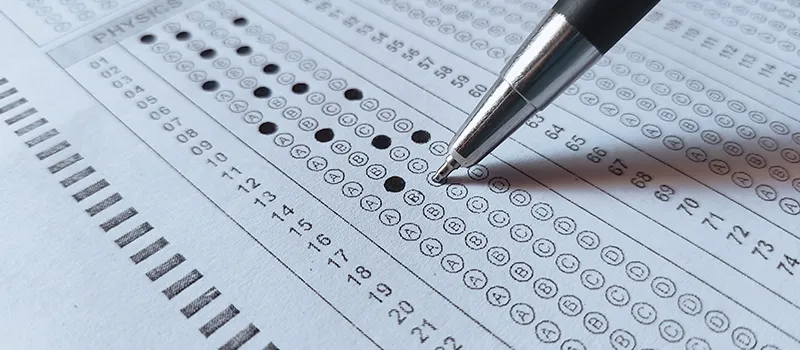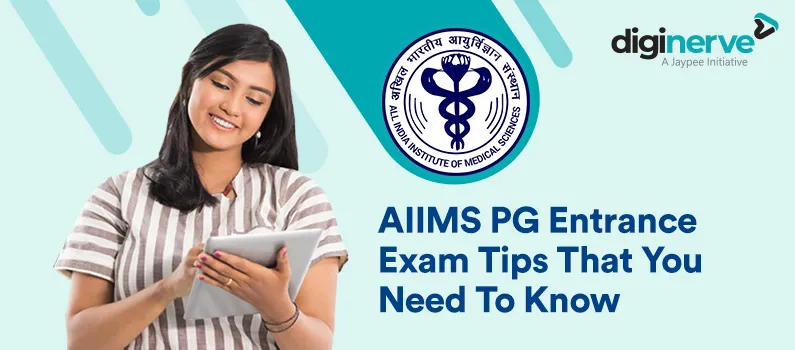
Scope of Community Medicine in the NEET PG Syllabus
High-yielding topics are a key element for an effective preparation strategy to score high in exams. A NEET PG aspirant must plan the preparation wisely focusing on high-yielding topics from every subject, time management, and most of all, health. Community medicine is a branch of medicine concerned with health promotion and disease prevention using professional management skills. A degree in community medicine field provides a holistic view of health and medical interventions with a primary focus on population health.
What is Community Medicine?
Community Medicine is a field of medicine dedicated to health promotion and prevention of diseases through community engagement and professional management. Community Medicine specialists adopts comprehensive approach to health, focusing on both individual and population level interventions. They are trained in various aspects of healthcare, including primary, secondary, and tertiary care as well as controlling and preventing outbreaks and epidemics. Their expertise also covers community diagnosis, health needs assessment, epidemiological analysis, and the development of evidence-based health policies and programs.
Scope of Community Medicine
An individual who has completed an MBBS (Bachelor of Medicine, Bachelor of Surgery) degree can pursue an MD (Doctor of Medicine) in Community Medicine. Community Medicine, also known as Public Health or Preventive and Social Medicine, is a medical specialty that focuses on the health of populations and communities rather than individual patients.
The scope of doing an MD in Community Medicine after an MBBS includes the following:
1. Public Health Administration
Graduates can work in government health departments, international organizations, or non-governmental organizations (NGOs) in roles related to public health policy development, program planning, and implementation which are great career choices in healthcare sector.
2. Epidemiology and Surveillance
They can be involved in the study of the distribution and determinants of health-related states or events in specific populations and the application of this study to control health problems.
3. Health Education and Promotion
Community Medicine specialists can design and implement health education programs to promote healthy behaviors and preventive measures among the public.
4. Disease Prevention and Control
They can contribute to the prevention and control of communicable and non-communicable diseases through surveillance, outbreak investigation, and the development of intervention strategies.
5. Environmental and Occupational Health
Graduates can work on issues related to the impact of the environment and workplace on public health, such as water quality, air pollution, and workplace safety.
6. Maternal and Child Health
Community Medicine specialists can be involved in the planning, implementation, and evaluation of maternal and child health programs, including immunization, nutrition, and reproductive health.
7. Health System Management
They can work in the management and administration of healthcare systems, including the planning, organization, and evaluation of healthcare services at the community or population level.
8. Research and Academics
Individuals with an MD in Community Medicine can engage in research, teaching, and academic activities related to public health and preventive medicine.
Best books for Community Medicine Preparation
- Review of Preventive & Social Medicine by Vivek Jain
- Self-Assessment & review of preventive 7 Social Medicine 10th ed 2018 by Satish S. Mali & Arvind Arora
- PSM Trends 2017-18 By Mukhmohit Singh/ Shveta Saini
- Conceptual Review of Preventive and Social Medicine (PSM) (PB 2018) by Mukhmohit Singh
- Essentials of Community Medicine Practicals by DK Mahabalaraju
MBBS Prof Exam Pattern
According to the new CBME curriculum, the MBBS Prof exam for the Community Medicine subject has two theory papers, each of 100 marks, and the practical examination (Practical/Clinical + Viva) of 100 marks, i.e., a total of 300 marks paper. Questions in the theory examination include different types such as structured essays (long answer questions – LAQ), short answer questions (SAQ), and objective questions (MCQs and IBQs).
NEET PG Community Medicine Strategy
Preventive and Social Medicine is a important subject for the NEET PG exam, but its terminology can be complex and challenging to remember. To master this subject effectively, a strategic approach to studying is essential. Here are some tips & strategies for PSM preparation
- Allocate specific time slots for PSM study and stick to them.
- Regular practice multiple choice questions & concept-based questions to gauge your understanding and retention.
- Create structured study plan to cover all important topics.
- Focus on practicing image-based questions as these are featured more in PSM.
- Analyze past exam papers to identify recurring questions related to new schemes, environmental issues, and immunization programs, stay updated with these topics.
- Familiarize yourself with the format and types of questions typically asked in exam.
- Regularly review and memorize important PSM concepts and terminology.
- Create focused study environment to enhance concentration and productivity.
Community Medicine Important Topics For NEET PG
During MBBS, you should focus on early preparation not only for prof exams but also for competitive exams if you are aiming for postgraduate. Currently, there are two main exams in India, INI-CET and NEET PG/NExT. The weightage of Community Medicine is about 13-16 questions in INI-CET and 20-22 questions in NEET PG 2023.
Here’s a list of Important topics for PSM for NEET-PG, INI-CET, and MBBS Prof exams:
Concept of Health and Disease
- PQLI
- HDI
- Spectrum of Health
- Determinants of Health
- Indicators of Health
- Disability rates
- Healthcare Delivery Indicators
- Levels of Healthcare
- Epidemiological triad- The triangle
- Multifactorial causation
- The web of causation
- Natural History of Disease
- Risk factors
- Iceberg of disease
- Concept of Prevention
- Modes of Intervention
Environmental Health Problems
- Water (Complete)
- Air Pollution
- Disposal of wastes
- Septic tank
- Modern sewage treatment (Complete)
- Principles of arthropod control
- Mosquitoes- Anopheles vs Aedes
- Oxidation pool
- Fly control measures
- Classification of insecticides
- Overcrowding
- Indices of thermal comfort
Read more to know about the important topics for community in NEET PG & INI-CET
Important Topics of Community Medicine for NEET-PG and INI-CET (diginerve.com)
Must know Topics for Community Medicine practical examination
- Health-WHO and Operational Definition
- Definition -Primary Healthcare, disease, Illness, Sickness,
- Elimination & Eradication
- Epidemiology- Infectious diseases
- HTN (Complete)- rules, risk factors, tracking, prevention
- Diabetes Mellitus
- Obesity
- HIV
- Contraception
- Nutrition-Milk & Egg
- Arthropods of medical importance
- Arthropod-borne diseases
- Overcrowding
All above mentioned are high-yielding topics for NEET PG 2023 and frequently asked topics in the MBBS prof exams. Do not skip these important topics to score high in your exams.
To supplement your studies and NEET PG 2023 preparation, Community Medicine for UnderGrads is one of the best online PSM courses by renowned faculty, Dr. Bratati Banerjee. This online course includes illustrated video lectures, notes, 2000+ self-assessment questions, and case studies. The lectures follow the new CBME approach, which ensures conceptual clarity and high scores in prof and entrance examinations.
Conclusion
Community Medicine holds significant importance in the NEET PG syllabus, as it covers essential topics related to public health, epidemiology, and preventive medicine. Topics like maternal and child health, vaccination programs, healthcare policies, and global health challenges are frequently tested. For students preparing for NEET PG and INI-CET, DigiNEET offers expert-led video lectures that dive deep into these topics, with a focus on high-yield areas critical for exams. The platform also includes MCQs, case-based learning, and revision tools such as flashcards (GEMS) to help students consolidate knowledge. DigiOne, with its foundational content in Anatomy and Physiology, supports a better understanding of how biological factors affect public health outcomes. With these platforms, students can effectively prepare for Community Medicine and gain the necessary knowledge to succeed in NEET PG and other competitive exams.
Frequently Asked Questions (FAQs)
Q1. Who is eligible for MD in Community Medicine?
Ans: To pursue MD in Community Medicines, one must have to complete their graduation in MBBS or any other relevant degree with at least 50% marks from a MCI recognized Institute. For MD Community Medicines one also may be required to qualify any entrance test like NEET-PG, etc. followed by a GD/ PI round.
Q2. How important is PSM for NEET PG?
Ans: Preventive and Social Medicine (PSM) is an important part of the NEET PG medical entrance exam with a considerable weightage of 25 questions. It alone counts for 100 marks in the NEET PG exam. Since this subject holds a high weightage, it is very important to become fluent in the subject.
Q3. What is the fees of MD Community Medicine in India?
Ans: The total tuition fee for Kalinga Institute of Medical Sciences MD in Community Medicine is INR 2700000. Apart from the tuition fee, there is a one-time admission fee of – INR 75000, and a hostel fee of amount INR 435000 that students are required to pay. The course offers admission to 6 students.
Related post




























